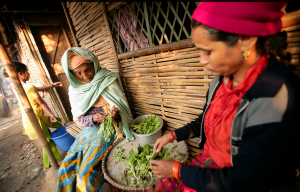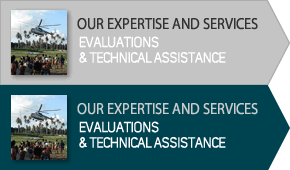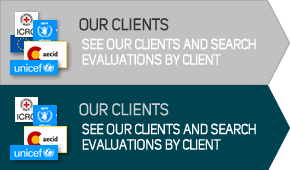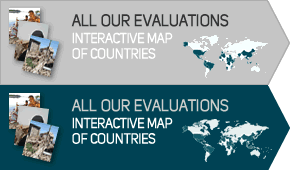November 29, 2013

Nepalese refugees
UNHCR / J. Rae
DARA published the evaluation report of the United Nations Food and Agriculture Organisation’s (FAO) work in disaster risk reduction in Asia and the Pacific, and in Latin America and the Caribbean.
The evaluation provided FAO Member Countries and Secretariat with a qualitative assessment of the organisation’s activities in this field in both regions, highlighting lessons learned and good practices, and with recommendations on its role and work in the future.
The study recommended that FAO:
- Refocuses its approach in order to mainstream DRR
- Develops a multi-disciplinary logical framework that clearly identifies causalities between FAO core interventions, food security, DRR, climate change and resilience
- Significantly strengthens its institutional capacity in order to conceptually and technically reinforce DRR, including a stronger focus on gender sensitive programming
- Reduces its DRR interventions to pre-selected countries against clear-cut criteria
- Focuses interventions on geographically defined areas in selected countries
- Broadens its dialogue in the selected countries beyond the Ministries of agriculture to include other strategic counterparts in DRR
This evaluation reflects the analysis and findings from two parallel evaluations carried out in Asia and Latin America and the Caribbean from May to December 2012, as well as from two desk studies. The two evaluations covered 11 countries in total (Bolivia, Peru and Ecuador in South America; the Dominican Republic, Guatemala and Nicaragua in Central America and the Caribbean; and Cambodia, Nepal, Bangladesh, the Philippines and Indonesia in Asia).
The evaluation was conducted by Nicolai Steen, Yasemin Aysan, Allan Lavell, Tim Bene and Pierre Leguéné.




Share this